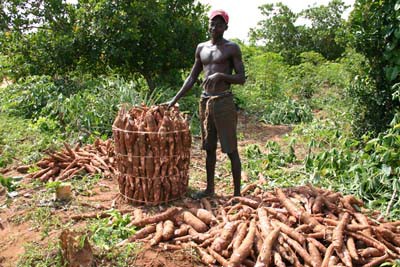
Vice President Yemi Osinbajo has insisted that President Muhammadu Buhari is positioning agriculture as the arrowhead of the economic recovery effort and that it is one of the most critical components of the plan to revive the economy.
“There is no question at all that if we get agriculture right, we will get our economy right.”
Osinbajo, who spoke on Tuesday in Abuja at the public presentation of ‘The Green Alternative’, The Buhari Administration’s Agricultural Promotion Policy, said: The roadmap that we are about to present, identifies two key challenges. The first is the inability to meet domestic food requirements: this is a productivity challenge driven by an input system and farming model that is likely inefficient, the lack of good seeds, fertilisers, irrigation, crop protection etc.
“And two: the inability to export at the level required for marketing, which is typified by an inefficient system for setting and enforcing food quality, poor knowledge of target markets, a weak inspectorate system and poor coordination amongst relevant agencies.
“With great clarity, ‘The Green Alternative’ sets out strategies for resolving these challenges.
“I am personally impressed that The Roadmap does not dismiss the Agricultural policies of the past. Indeed, the policy says that it is “building on the successes of the agricultural transformation agenda, closing the gap.”
The Vice President said that the problem has never been a lack of policy, but that it has always been the focus and capacity to stick to the plan, to modify when necessary and ensure also that the plan aligns with all aspects of the economic plan of the Government.
He said that a policy encouraging local food production cannot work with another policy that has a high tariff on imported agricultural equipment.
“There is no way that we can encourage local production, when we allow unbridled importation of the same things that we are trying to produce. “There is no way we can do the scale of agricultural production both for domestic consumption and export, without ensuring local improved seedling development, alongside those that have been bought and of course encouraging the work of the Agencies, and the Ministry of Science and Technology, who have been making great strides in local development of agricultural improvement.”
He said that the nation’s social investment programmes ought to be designed to align with its agricultural and other policies.
“So, of the 500,000 Teacher Corps that will be engaged, 100,000 of them will be trained as extension workers for our farms. Our Home Grown School Feeding Programme which seeks to provide a meal a day to primary school children is described as ‘homegrown’ specifically because the food will be from the farms in each state.
“Some of the states that have started the programme are already seeing the important multiplier effects in their agricultural sector.
“Financing of agriculture is also a crucial policy. With double digit interest rate at the moment, we must develop some funding options in the short term. The Anchor Borrowers’ Scheme of the CBN has proved to be extremely useful. Indeed the phenomenal success of the Kebbi State rice programme where the farmers move from 3.5MT per hectare to 7.5MT per hectare was largely because of the single digit interest rate extended by the Anchor Borrowers’ Scheme of the CBN which they used to purchase the right fertilizer quality and other inputs.”
Osinbajo said that the ministry of Finance has concluded plans to recapitalize and re-engineer the Bank of Agriculture and that it is expected that before the end of this quarter, the Bank of Agriculture should be ready to give single digit interest loans to farmers.
He commended the minister of agriculture and rural development, Chief Audu Ogbeh, for spearheading the effort of developing this roadmap which is the nation’s pathway to sustained and rapid progress in the agricultural sector.
“Indeed, not only has Chief Audu Ogbeh developed this roadmap effectively and within a very short time but he has also conducted advocacy of the kind we have not seen in a long time in the agricultural sector.” [myad]